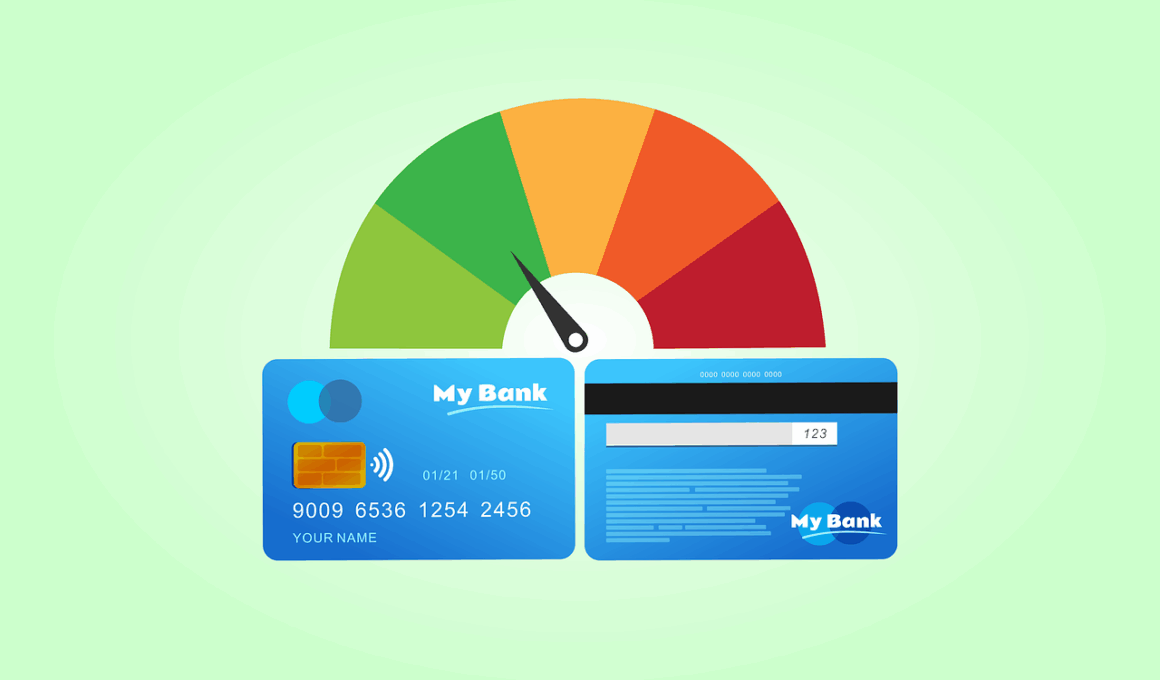The Role of Credit Card Companies in Credit Reporting
Credit card companies serve as pivotal intermediaries in the credit reporting ecosystem. When consumers apply for credit cards, the issuers manually check applicants’ credit scores to assess their creditworthiness. This information is vital because it determines whether they’re granted credit and at what interest rates. If approved, credit card companies report the account’s performance to credit bureaus regularly. This includes timely payments, total credit utilization, and any missed payments. These factors influence overall credit scores. The implications of these reports can affect consumers’ financial health, influencing other credit applications like loans or mortgages. As such, understanding the reporting cycle and what impacts credit scores becomes paramount. The more responsible individuals are with their credit use, the more favorable their credit reports will be. Credit card companies thus play a significant role not just in providing credit, but in shaping the financial futures of their clients by reporting pertinent information to bureaus which ultimately reflects on individual credit scores. Credit consumers should maintain awareness of their reports and proactively manage their credit usage for better financial outcomes.
Credit card companies also influence credit scores through the comprehensive data they provide to credit bureaus. Every month, they provide updates regarding account balances, payment history, and credit limits. This document styles a consumer’s overall risk profile. Continuous reporting ensures that credit bureaus have accurate and up-to-date information. When payments are made on time, credit scores benefit significantly because a good payment history contributes positively. On the contrary, discovering missed payments adversely affects credit reports. Consumers who are unaware of how credit utilization, which reflects how much credit is being used relative to available credit, can harm their credit scores. For example, consistently using a high percentage of credit limits may portray a pattern of financial irresponsibility. Therefore, credit card companies encourage consumers to keep their credit utilization low, ideally under 30%. A lower utilization rate not only improves the credit score but also portrays a reliable borrower in the eyes of potential lenders. Consequently, the role of credit card companies transcends merely providing credit; they act as essential facilitators in the journey towards financial health.
Understanding Credit Reporting Practices
Moreover, credit card companies follow standardized practices when reporting to credit bureaus. These practices ensure that consumers have their information accurately represented. Regulatory bodies oversee these protocols, requiring that card issuers present fair and honest reporting. Consumers can review their reports for accuracy, and if discrepancies arise from credit card companies, individuals have the right to dispute. This process helps maintain the integrity of credit reports. Consumers should understand that timely disputes can correct issues that may influence their borrower potential adversely. Once disputes are addressed, improvements in credit scores can manifest. In addition, understanding how many inquiries happen on a credit report can help consumers manage their credit health effectively. Each hard inquiry during credit applications can cause temporary dips in credit scores. Thus, limiting applications can further enhance stability. Credit reporting provides an essential lens through which creditworthiness is determined, and credit card companies have a responsibility to report data that fosters accurate credit scores and responsible consumer behavior. Regular interactions with companies can keep consumers informed about their credit standing and penalizations that could arise if missed.
Another aspect is the impact of promotional offers by credit card companies on credit reports. Often, companies create enticing offers featuring rewards or low-interest rates for new applicants. While these incentives are attractive, they can lead to an uptick in applications for credit. Increased applications can translate into multiple hard inquiries on a consumer’s report, which may negatively affect their credit score. For those with thin credit files or limited credit history, managing the number of applications becomes crucial. New credit accounts contribute a lower average age of credit, which can lower scores, particularly for long-standing users. When considering new credit cards, consumers should assess their current credit profile and deliberate over the balance between rewards and credit impacts. Additionally, delays in reporting from credit card companies can temporarily impact scores as lenders evaluate applicants based on their last reported balances. It is beneficial for consumers to stay aware of these factors and understand how the actions of credit card companies can guide their financial paths positively or negatively. Being strategic with credit card choices could lead to optimal benefits without diminished credit statuses.
The Importance of Monitoring Credit Reports
Monitoring credit reports for accuracy helps consumers stay informed regarding factors that influence their scores. Credit card companies provide access to credit reports for free or at minimal cost. Such services allow individuals to track their credit usage and report any inaccuracies. Regularly monitoring these reports helps consumers detect potential fraud or errors early on. As fraudulent accounts can impair a consumer’s credit profile, timely detection is critical. Moreover, inaccuracies may arise through human errors or incorrect reporting by credit card companies. For instance, a late payment might be logged mistakenly. By accessing their reports, consumers can perform an audit and request corrections, thereby improving their credit score. Once the issued corrections take place, individuals may experience a rapid scoring increase, thereby gaining access to better financial products. As these strategies unfold, an improved credit score opens doors to favorable loans or credit options. Engaging in good credit management becomes essential for achieving set financial goals. Thus, leveraging the tools provided by credit card companies for credit monitoring represents an informed consumer approach toward building a solid credit future.
Furthermore, credit card companies provide educational resources aimed at improving consumers’ understanding of credit management. Many of these companies offer blogs, webinars, and credit calculators designed to help consumers comprehend their credit profiles better. Participants armed with knowledge can navigate their credit landscapes effectively. Understanding credit utilization and payment history enables individuals to make informed financial decisions. Moreover, education helps in knowing when to apply for credit and in recognizing how credit limits work regarding their overall credit score. The emphasis on financial literacy underscores the significance of proactive management of credit. Credit is not merely a tool for buying but a critical asset for financial well-being. By engaging with the educational content provided by credit card companies, consumers can build essential skills to navigate future borrowing needs. Budgeting and responsible spending become integrated into users’ daily routines. As credit card companies focus on fostering responsible credit usage through educational platforms, individuals ultimately reap the benefits in terms of improved credit scores and overall financial empowerment. Knowledge is integral to making sound financial choices that benefit both consumers and the lending ecosystem.
Conclusion: The Ongoing Influence of Credit Card Companies
In conclusion, credit card companies wield significant influence in the realm of credit reporting and consumer financial health. They play a vital role in shaping credit scores through their reporting practices, careful monitoring of consumer behavior, and educational initiatives. Elevating consumer awareness regarding the importance of credit management fosters responsible borrowing. It’s crucial for consumers to understand the factors that shape their credit profiles. Knowledge of utilization, payment history, and the impact of inquiries plays a role in maintaining favorable credit scores. Moreover, understanding how credit card companies report account information impacts the borrowing landscape. Consumers who engage with their credit card providers can benefit from transparency and educational resources, guiding them towards making smarter financial choices. Ultimately, good credit management leads to enhanced borrowing opportunities and access to critical financial products. As credit knowledge becomes increasingly important, consumers must proactively manage their credit journeys. By doing so, they ensure a promising financial future, recognizing that credit scores not only dictate loan eligibility but also reflect personal financial responsibility. Responsibility in credit use shapes both individual and overall economic stability.





